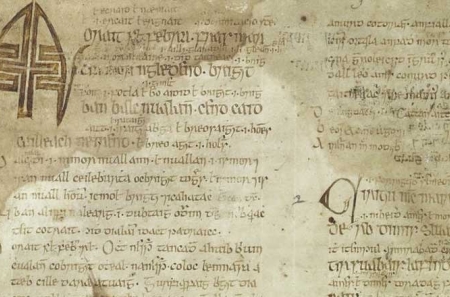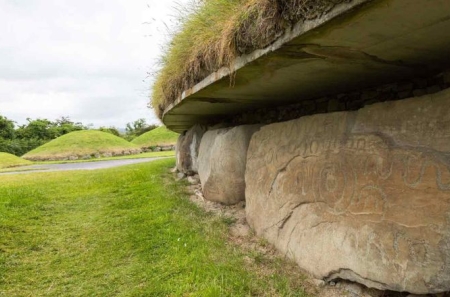
New blog series on Climate and Society in Ireland
26 August 2021Our new blog series will explore the varied environmental, climatic and social changes that occurred in Ireland from early prehistory to the early 21st century.
Can a long-term perspective on human adaptations to climate change inform Ireland’s response to the crisis we face today? This is the question that we will try to answer in a series of blogs based on our latest publication Climate and Society in Ireland, edited by James Kelly and Tomás Ó Carragáin. Join us every Wednesday, starting 1 September, as the book contributors shape a multi-period, interdisciplinary perspective on one of the most important challenges currently facing humanity.
As editors James Kelly and Tomás Ó Carragáin explain in their introduction,
‘In Ireland, as elsewhere on the planet, the proliferation in recent years of extreme weather events has amplified interest in the reconstruction of an accurate history of climate and weather. [...] Yet, appreciation of its implications emerged slowly. Indeed, though the nineteenth-century Irish born scientist John Tyndall was one of the first to identify the warming effects of greenhouses gases, climate change was not deemed a serious issue in Ireland at either the academic or public level for a number of years after the establishment […] in 1988 of the Intergovernmental Panel on Climate Change. This was not a tenable position, given the weight of scientific evidence pointing to the acceleration in ‘global warming’, but the Irish scholarly community was poorly positioned to identify the likely implications as climate modelling was still in its infancy and the research infrastructure required to investigate the phenomenon was basic at best. Moreover, the meteorologists, climate geographers and others who were in the vanguard of inquiry in this respect could not appeal to the history of climate in Ireland either for context or direction since the discipline of History seemed disinterested, while Geography did not prioritise historical climate inquiry. By comparison, archaeologists and scholars in cognate disciplines afforded it more prominence in their narratives, though their hypotheses were rarely demonstrable evidentially. [...]
One might question the extent to which knowledge of past strategies of climate resilience can feed into real world decisions about the future of heavily industrialised societies, especially if the changes wrought in the Anthropocene are more rapid and dramatic than the climatic shifts encountered by complex societies in the past. However, it is vitally important to understand the full spectrum of human responses to past climate change at a time when some find it difficult to respond meaningfully to the current crisis due to the seemingly overwhelming scale of the challenge, while others continue to deny it altogether. [...] As the challenge of climate change compels us to alter our behaviour in the present, it is essential that we equip ourselves with a full and detailed appreciation of how our forebears did so in the past. This will not provide us with all the answers we may need in the years ahead, but it should assist us in understanding the order and range of the problems that will be posed, while also underscoring the unprecedented nature of the current crisis.'
This new blog series will follow the structure of the book and engage with a number of pertinent themes, including the impact of climate change on the earliest human settlement of Ireland; weather-related food scarcities during medieval times that led to violence and plague outbreaks; changing representations of weather in poetry written in Ireland between 1600 and 1820; and how Ireland is now on the threshold of taking the radical steps necessary to shed its ‘climate laggard’ status and embark on the road to a post-carbon society.
Contributions are by Máire Ní Annracháin, Katharina Becker, David M. Brown, Lucy Collins, Lisa Coyle McClung, Bruce M.S. Campbell, Rosie Everett, Benjamin Gearey, Raymond Gillespie, Seren Griffiths, James Kelly, Francis Ludlow, Meriel McClatchie, Conor Murphy, Simon Noone, Aaron Potito, Gill Plunkett, Phil Stastney, Graeme T. Swindles, John Sweeney, Graeme Warren.



